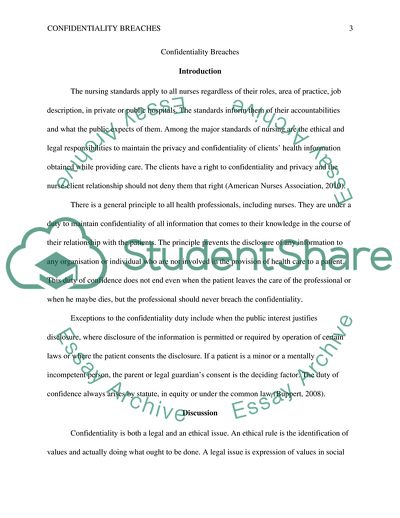Cite this document
(Confidentiality breaches Essay Example | Topics and Well Written Essays - 1500 words, n.d.)
Confidentiality breaches Essay Example | Topics and Well Written Essays - 1500 words. https://studentshare.org/nursing/1846118-confidentiality-breaches
Confidentiality breaches Essay Example | Topics and Well Written Essays - 1500 words. https://studentshare.org/nursing/1846118-confidentiality-breaches
(Confidentiality Breaches Essay Example | Topics and Well Written Essays - 1500 Words)
Confidentiality Breaches Essay Example | Topics and Well Written Essays - 1500 Words. https://studentshare.org/nursing/1846118-confidentiality-breaches.
Confidentiality Breaches Essay Example | Topics and Well Written Essays - 1500 Words. https://studentshare.org/nursing/1846118-confidentiality-breaches.
“Confidentiality Breaches Essay Example | Topics and Well Written Essays - 1500 Words”. https://studentshare.org/nursing/1846118-confidentiality-breaches.


